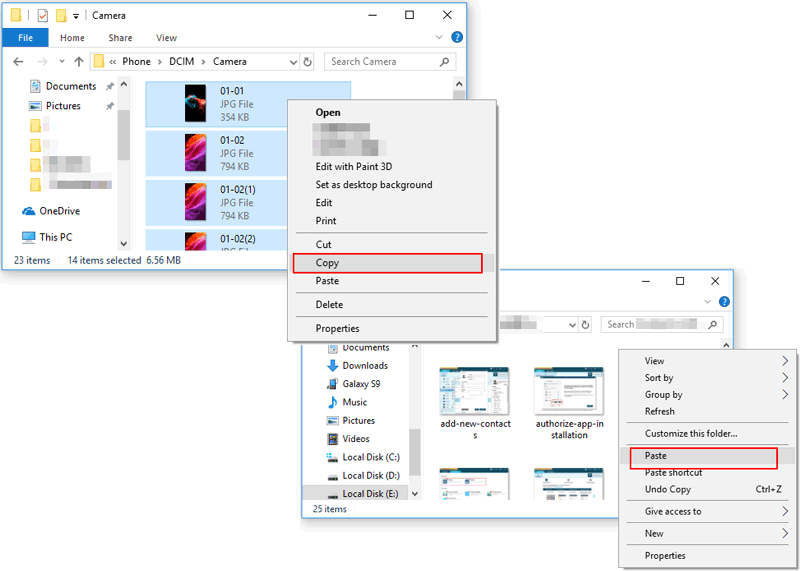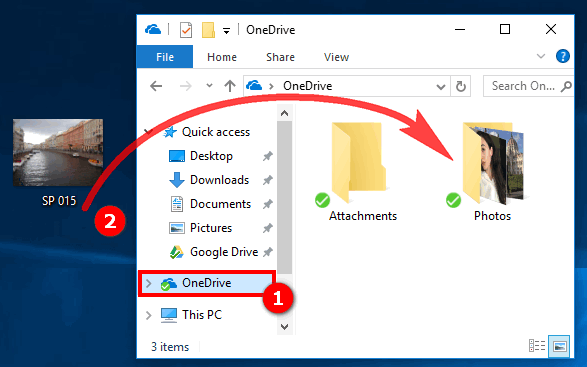How To Upload Photos From My Phone To My Computer

In an era defined by instant photography, the seamless transfer of images from smartphones to computers has become a fundamental necessity. But the process isn’t always straightforward. Users often grapple with compatibility issues, software glitches, and the sheer volume of photos stored on their devices.
This article provides a comprehensive guide to various methods for transferring photos from phones to computers, addressing common challenges and offering practical solutions for both Android and iOS users. It aims to equip readers with the knowledge to efficiently manage their digital memories, ensuring precious moments are safely backed up and easily accessible.
Understanding Your Options: A Detailed Overview
Several methods exist for transferring photos, each with its own advantages and drawbacks. The best option depends on factors like operating system, available hardware, and personal preference.
Using a USB Cable: The Direct Approach
The most straightforward method involves connecting your phone to your computer using a USB cable. This offers a direct, reliable connection, bypassing the need for internet access.
For Android users, once connected, the phone will typically appear as a removable drive. Simply navigate to the DCIM (Digital Camera Images) folder and drag-and-drop the desired photos to your computer.
iOS users may need to install iTunes (though it is becoming less essential with newer macOS versions). After connecting the iPhone, the computer should recognize it as a digital camera, allowing for image transfer.
Cloud Storage Services: Accessibility and Convenience
Cloud storage services like Google Photos, iCloud Photos, Dropbox, and Microsoft OneDrive provide a convenient way to automatically back up and sync photos across devices. This ensures that photos taken on your phone are instantly available on your computer.
However, this method relies on a stable internet connection and sufficient storage space. Users should also be mindful of privacy settings to control who can access their uploaded photos.
Consider the costs associated with expanded storage plans when choosing this option. According to Statista, cloud storage adoption has been steadily increasing, reflecting its perceived convenience and accessibility.
Wireless Transfer Apps: Efficiency and Flexibility
Numerous apps, such as Send Anywhere, AirDroid, and SHAREit, facilitate wireless photo transfers. These apps create a local Wi-Fi network to transfer files directly between your phone and computer, often faster than Bluetooth.
They typically require both the phone and computer to be on the same Wi-Fi network and have the app installed. These apps often offer additional features like file management and device mirroring.
Email and Messaging Apps: Quick but Limited
For transferring a small number of photos, emailing them to yourself or using messaging apps like WhatsApp or Telegram can be a quick solution. However, these methods often compress the images, reducing their quality.
They are not suitable for transferring large batches of photos due to file size limitations and potential data usage costs.
Troubleshooting Common Issues
Despite the variety of methods, users may encounter challenges during the transfer process.
Connection Problems:
If your computer doesn't recognize your phone, try using a different USB cable or USB port. Ensure that the phone's USB connection mode is set to "File Transfer" or "MTP" (Media Transfer Protocol) in the phone's settings.
Software Glitches:
Outdated drivers or software can interfere with the transfer process. Make sure your operating system and related software are up to date.
Restarting both your phone and computer can often resolve temporary glitches.
Storage Limitations:
Ensure you have enough free space on both your phone and computer. Large photo libraries can quickly fill up storage, leading to transfer errors.
Privacy and Security Considerations
When transferring photos, especially via cloud services or wireless apps, prioritize security. Use strong passwords and enable two-factor authentication for your accounts.
Be cautious of public Wi-Fi networks, which may be less secure. Consider using a VPN (Virtual Private Network) when transferring sensitive data over public networks. Regularly review the privacy settings of your cloud storage services to control who has access to your photos.
The Future of Photo Transfer
The future of photo transfer likely involves even greater integration with cloud services and more seamless wireless connectivity. With the rise of 5G and advancements in Wi-Fi technology, transferring large files will become even faster and more reliable.
We can anticipate more intelligent algorithms that automatically organize and categorize photos, making it easier to manage our growing digital collections. Ultimately, the goal is to make the process as intuitive and effortless as possible, allowing users to focus on capturing and sharing their memories.





:max_bytes(150000):strip_icc()/004-how-to-transfer-photos-from-phone-to-computer-4173057-094876c0a9c3471591224b83fb0672c0.jpg)












